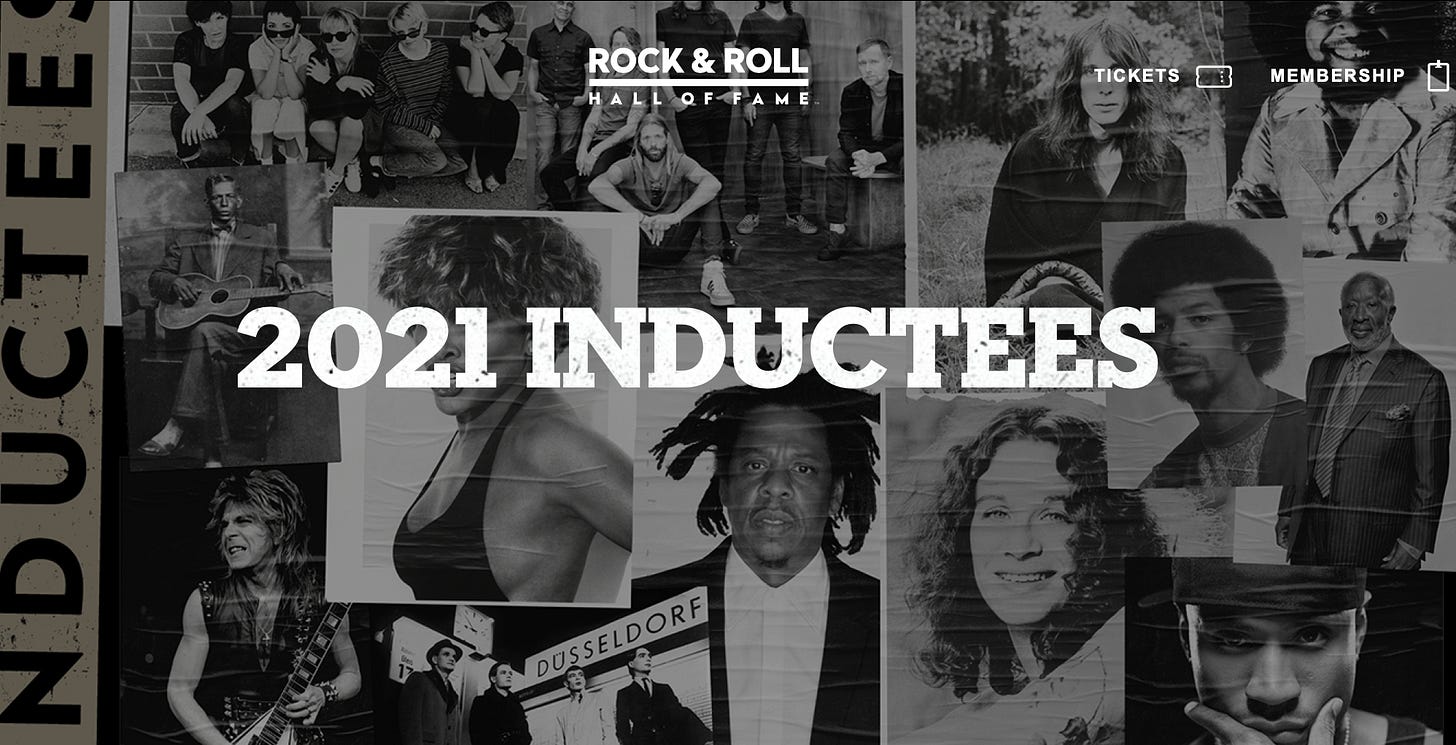Jay Z: Rock and Roll Hall of Famer 🐐
Yesterday, Brooklyn-born billionaire Jay Z became the first living solo Hip Hop artist to be inducted into the Rock and Roll Hall of Fame, after he became eligible in 2021.
We write a daily newsletter on all things Music, and the Business and Tech behind it. If you’d like to get it directly in your inbox, subscribe now!
What’s good, people?
Yesterday, the Rock and Roll Hall of Fame inductees were announced for 2021, and for the first time ever, a living solo hip-hop artist was included; and it could really be only one worth the accolade: Jay Z.
The Brooklyn-born artist’s record speaks for itself:
— over 50 Million albums and 75 Million singles sold worldwide
— 14 No. 1 albums (most ever by a solo artist)
— 22 Grammy Awards (most in hip hop history)
— hip hop’s first billionaire with a net worth of $1.4 Billion.
As he said: I am not a businessman, I am a business, man!
G.O.A.T 🐐
But how did a hip-hop legend end up in the Rock and Roll Hall of Fame? And why is it such a big deal?
JAY-Z is not the first rapper to be inducted into the Hall of Fame. He follows an illustrious list of: Run-D.M.C. (2009), Beastie Boys (2012), Public Enemy (2013), N.W.A (2016), Tupac Shakur (2017) and Notorius B.I.G (2020).
The Rock and Roll Hall of Fame Foundation was established in 1983, by Ahmet Ertegun, founder, and chairman of Atlantic Records. After a long search for the right city, Cleveland was chosen in 1986 as the Hall of Fame's permanent home. Since then, every year, artists from around the world, who have contributed to the rise of Rock music are inducted into the Hall of Fame, with the eligibility criteria being that artists had to have released their first record 25 years earlier and "have created music whose originality, impact and influence has changed the course of rock & roll.
Like most of the other aspects in Entertainment and Award shows today, even the Rock and Roll Hall of Fame Foundation, has come under attack for its lack of diversity in recognizing the work of women and artists of color in Music, with less than 10% of inductees being women and less than 30% of them being people of color.
This diversity issue is something that John Sykes, Chairman of the Foundation attempts to fix. Speaking on the occasion of the 2021 inductees, which saw the highest number of women and people from diverse backgrounds, he said:
This diverse class of talented Inductees reflects the Rock Hall’s ongoing commitment to honor artists whose music created the sound of youth culture, It will make for an unforgettable live celebration of music in October at this year’s Induction Ceremony in Cleveland.”
In recent years, Rock Hall voters have done their best to push back against the long-held notion that the institution only honors aging white men; after decades of calls for more women and people of color to be inducted — including in 2019, when Janet Jackson capped off her acceptance speech by stating simply, “Induct more women”
Whitney Houston and the Notorious B.I.G. were inducted last year, and this year’s nominees include more women in a single year than ever before, with three female acts making the cut. Following is the full list of inductees in the performer category for this year:-
Tina Turner
Carole King
The Go-Go’s
JAY-Z
Foo Fighters
Todd Rundgren
More diversity, however, also means a wider variety of genres represented in the Hall. It may feel a little odd to bring them all in under the “rock” banner that doesn’t really apply to them, however, the thing is, the Rock and Roll Hall of Fame has never been solely about honoring rock artists.
Whether it’s disco groups like ABBA (2010) or the Bee Gees (1997); hip-hop icons like Beastie Boys (2012); soul legends like James Brown (1986), Aretha Franklin (1987) and Marvin Gaye (1987); country artists like Johnny Cash (1992); jazz greats like Miles Davis (2006); pop stars like Madonna (2008); or girl groups like The Supremes (1988), there have always been inductees whose music can’t accurately be described as “rock.”
Our take on this?
While ‘Woke’ and ‘Cancel’ culture has generally been unproductive to bring about any change attempted, it is understandable for music fans to be unhappy over the skewed demography in the inductees.
By keeping the “Rock and Roll Hall of Fame” name, the Hall continues to present them as exceptions to the rule; wouldn’t a more generalized name such as ‘Music Hall of Fame’ encourage voters to embrace a wider spectrum of nominees?
As long as they stick with the pretense that the institution is solely meant to honor “rock” musicians, there’ll be purists whining about artists from other genres like Whitney Houston and Jay-Z getting in.
Haters gonna hate 🤷♂️
If you liked this newsletter from Incentify, why not share it with someone you like? Let’s build the community :)
P.S- Follow us on Twitter now!









